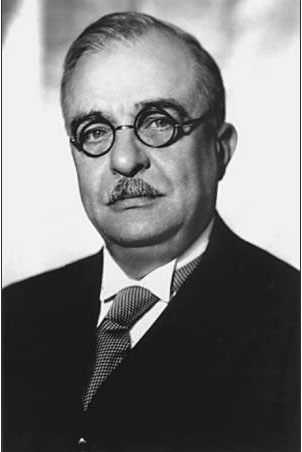Ioannis Metaxas

Ioannis Metaxas was born in Ithaca, Greece. He joined the Greek military in the late 1890s and fought in the war against Turkey. In the early 1900s, he studied in Germany. Returning to Greece, he fought in the Balkan Wars between 1912 and 1913. He reached the rank of captain in 1913 and served as the chief of the General Staff despite the junior rank; in this role, he participated in the modernization of the Greek Army. In 1916, he was promoted to the rank of lieutenant general. In Jun 1917, Eleftherios Venizelos overthrew the Greek monarch King Constantine I. Metaxas followed the king into exile to the French island of Corsica. He retired from the army in 1921. In 1920, Venizelos was defeated in an election, which prompted Metaxas to return. In 1922, Constantine was forced into exile again, but this time, Metaxas remained, now serving as a politician, founding the Freethinkers' Party on 12 Oct 1922. In Oct 1923, he was implicated with the failed Leonardopoulos-Gargalidis coup, which led to him fleeing the country until 1924. In 1926, the Freethinkers' Party claimed 15.78% of the popular vote and gained 52 seats in the Greek Parliament; with his party gaining influence, he was appointed the Communications Minister under Prime Minister Alexandros Zaimis.
Ioannis Metaxas was born in Ithaca, Greece. He joined the Greek military in the late 1890s and fought in the war against Turkey. In the early 1900s, he studied in Germany. Returning to Greece, he fought in the Balkan Wars between 1912 and 1913. He reached the rank of captain in 1913 and served as the chief of the General Staff despite the junior rank; in this role, he participated in the modernization of the Greek Army.
In 1916, he was promoted to the rank of lieutenant general. In Jun 1917, Eleftherios Venizelos overthrew the Greek monarch King Constantine I. Metaxas followed the king into exile to the French island of Corsica. He retired from the army in 1921. In 1920, Venizelos was defeated in an election, which prompted Metaxas to return. In 1922, Constantine was forced into exile again, but this time, Metaxas remained, now serving as a politician, founding the Freethinkers' Party on 12 Oct 1922.
In Oct 1923, he was implicated with the failed Leonardopoulos-Gargalidis coup, which led to him fleeing the country until 1924. In 1926, the Freethinkers' Party claimed 15.78% of the popular vote and gained 52 seats in the Greek Parliament; with his party gaining influence, he was appointed the Communications Minister under Prime Minister Alexandros Zaimis.
Between 1928 and 1933, his party steadily lost ground in elections, but he remained influential, serving as Interior Minister under Prime Minister Panagis Tsaldaris. In 1935, Greece became a monarchy again, and King George II appointed Minister of War Metaxas to the position of Prime Minister in the following year. In this position, faced with widespread unrest, he declared a state of emergency and assumed dictatorial powers. He suspended the parliament and certain articles of the constitution and outlawed political opposition. On 4 Aug 1936, he declared the 4th of August Regime and took on the title of Arkhigos, or "leader". Patterning his regime after Benito Mussolini's fascist regime, he instituted policies that favored the working class in order to improve the nation's productivity while also securing his power base; he was also credited with founding the first social security program in Greece. Although ruling from the right, his social policies kept the political left content.In terms of foreign policy, he was pro-British, but argued for neutrality largely because Germany was a major trading partner of Greece. On 28 Aug 1940, at the face of Italian threats, he was quoted in saying that "I place the dignity of Greece above everything else. I will not yield to the Italians". Two months later, on 28 Oct 1940, Italy gave Greece an ultimatum and three hours to respond. Metaxas refused to give in to Italian demands for territory, responding "Alors, c'est la guerre" ("Then it is war"); with Italian troops crossing into the Greco-Albanian border a few hours later, Greece entered into the European War. Under his direction, Greece forces held against the Italian invasion, and then counterattacked and pushed into Albanian territory. Metaxas died of toxaemia in Athens, Greece amidst the Greco-Italian War; some speculated foul play in his death.






